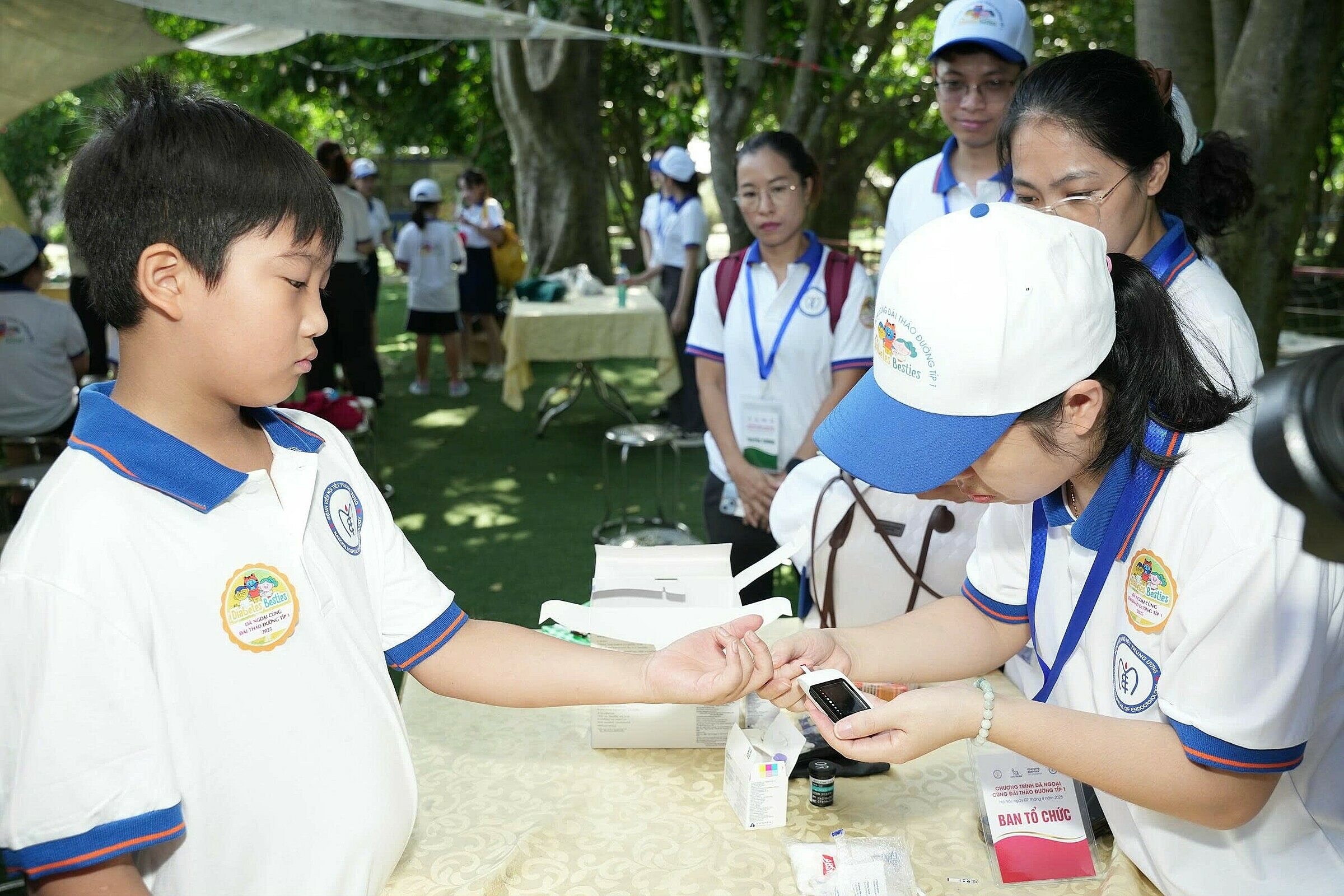Doctor Nguyen Quang Bay, head of the Endocrinology - Diabetes Department at Bach Mai Hospital, revealed this information at the "Outing with Type 1 Diabetes" program in Hanoi on 2/8. The program aimed to raise public awareness, improve comprehensive care, and increase access to health services for young patients.
The main reason for this situation is that the initial symptoms of the disease are easily confused with other conditions. Prolonged lack of insulin or arbitrarily stopping treatment causes dangerous complications to occur early and become severe. Diabetic ketoacidosis is a particularly serious acute complication that can leave permanent sequelae and even cause death if not treated promptly.
Unlike type 2 diabetes, which is largely lifestyle-related, type 1 diabetes is an autoimmune disease that occurs when the body produces antibodies that attack the beta cells of the pancreas, leading to the inability to produce insulin. Because insulin is the only hormone that lowers blood sugar, patients must inject insulin as a replacement for life. In addition, patients also face other chronic complications such as kidney failure, blindness, heart attack, and stroke, which seriously affect their health and quality of life.
 |
A child having their blood sugar measured at the program. Photo: Thu Trang |
A child having their blood sugar measured at the program. Photo: Thu Trang
Treatment for young children is even more challenging because they cannot monitor their own blood sugar or adjust insulin doses to match their diet and exercise. However, recent technological advances such as continuous glucose monitors connected to smartphones or automated insulin pump systems are offering the prospect of an "artificial pancreas", helping to control blood sugar more effectively and minimize the risk of complications.
Doctor Bay emphasized that if treated properly and blood sugar is well controlled, children with type 1 diabetes can learn, play, and develop normally. This requires close coordination between adherence to the treatment regimen, regular blood sugar monitoring, establishing a healthy diet, and maintaining appropriate physical activity.
For example, children are encouraged to eat low-fat, nutrient-rich foods, such as whole grains and breads, fruits, vegetables, dairy products, and protein. They should limit sugary foods and drinks and engage in regular physical activity.
Le Nga












